Nigeria is a great country
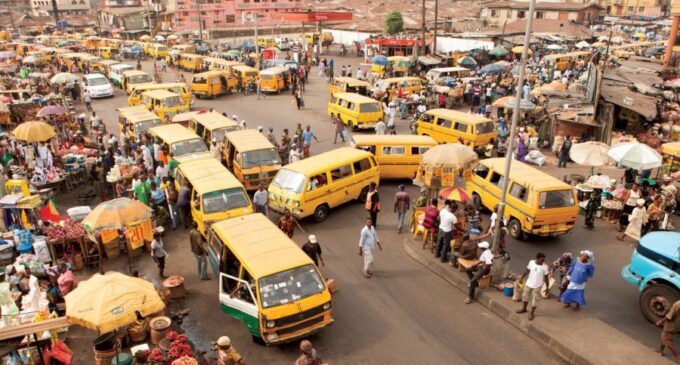
On January 10, 2022, I was sitting by the swimming pool of the Protea Hotel in Benin City with my brother and associate, Moses Ajayi. Every December, Ajayi and his folks take family and friends, tourists and visitors to the pristine Ososo community in Akoko Edo local government area for the annual Ososo Carnival, a showcase of colourful costumes, revelry, and entertainment.
As we sipped our drinks, we discussed sports, politics, and the economy. Ajayi, a passionate Arsenal FC fan just like me, was still reeling from the defeat Arsenal suffered the night before when Nottingham Forest’s Lewis Grabban stunned the Gunners with a late strike in the FA Cup third round. The 1–0 loss ended Arsenal’s FA Cup run.
The evening was humid after a hot afternoon that was dry and dusty due to the harmattan season. Shortly after, an Asian expatriate who was close by requested to join us at our table and we obliged him.
With background music on, our expatriate friend — clearly a jolly good fellow — was ready for his pitch on why Nigeria must be a great country. In my mind, I suspected that this would not be the first time he was making the pitch which actually turned out to be a lecture of sorts.
As he enjoyed his beer, he proclaimed Nigeria’s greatness. “Nigeria deserves to be great,” our Asian friend announced, as he began his pitch. Ajayi and I listened attentively. Perhaps, the information available to him must have nuanced his understanding of our situation.
He kept saying, “Nigeria deserves to be great” which he repeated, from my recollection, more than 10 times while our conversation lasted. I decided to appropriate those words as the title of this piece.
By the time I watched an old video where the late Maitama Sule, politician, diplomat and elder statesman (1929–2017) postulated how Nigeria could become another Japan if we had 20 straight years of peace and stability, I noticed a striking similarity with the pitch by our Asian friend.
“Nigeria is the leader in Africa,” he continued, sounding like an authority on the subject. “Your country has all it takes to be great but you must join hands together,” he added.
“You have the resources, the population, and the market. Nigeria needs to industrialise and focus on agriculture; after some years, you will see the result. I have benefitted from Nigeria and I want Nigerians to also benefit. Nigeria is greater than South Africa and Egypt.
“I love Nigeria and I don’t want to leave. I have been here for over 20 years and my desire is for Nigeria to be great.
“But I must tell you democracy is not bringing development to Nigeria. What is being practiced is capitalism; it is every man for himself. Nigerians don’t like doing things together, but you must collaborate to make progress.
“The resources are concentrated in a few hands instead of going round. Democracy is like a child holding an AK 47 rifle, shooting at random because the child does not know how to use the gun.
“Nigerians are creative, intelligent, and hardworking people; there’s no part of the world you will not find Nigerians. Only a few foreigners understand this country and how it works. My first business was lace fabric production in Kano but I have also set up other industries in Benue and Delta states.”
As our discussion progressed into the night, our friend, not surprisingly, delved into politics. Having lived in Nigeria for over two decades, he should know a thing or two about how we practice democracy.
“It will be a good thing if your next president comes from the south-west,” he said, posturing as an oracle without naming anyone. Well, it was only a wish and perhaps his preference but I asked him why south-west. “Yoruba people are intelligent people and if the next president comes from the south-west, it will be good for all.”
Our Asian friend explained his preference based on his understanding of our geopolitics but he did not suggest in any way that we do not have good leaders from other sections of the country. From our conversation, it was evident he understood the power configuration in Nigeria and how privileges and opportunities are shared.
But he is disappointed at the slow pace of growth and development. He believes that those who have access to power abuse the priviledge instead of using it for the benefit of Nigerians. “You have enough resources but it is concentrated in a few hands,” he said again and again. “It is better for more Nigerians to benefit from what you have.”
“Your people are not united; instead of doing things together, you undermine each other for selfish ends,” continued our Asian friend. It was just another way of saying we do not like ourselves, resulting in mutual suspicion. Unfortunately, tribe, religion, and region continue to divide rather than unite us. He hinted at the leadership crisis facing us with each election cycle.
“You have great leaders but you do not know how to pick the right persons to lead Nigeria to greatness,” he noted with a straight face. As he dissected these issues, Moses and I looked on in amazement. “My country is ready to help you harness your resources,” he pleaded, with a reassuring glint in his eyes.
What do you do when a foreigner sits across a table and tells you what you already know? “Nigeria deserves to be great” is not just an idea whose time has come; we should join hands together and make Nigeria great.
Although our Asian friend did not specifically mention “re-structuring” during our conversation, he hinted at a “new” system of government that would be beneficial to all, citing bribery and corruption, a culture of impunity, and an egregious sense of entitlement as vices that must be tackled before we can make progress.
In a nutshell, our laws must be enforced, no matter whose ox is gored – no one should be above the law. He also suggested that the “power brokers” holding the country by the jugular should prioritise the development of Nigeria ahead of every other interest by endorsing the candidate that is most suitable to lead the country next year.
He is confident Nigeria can regain lost ground with the right leadership, insisting that industrialisation and agriculture are Nigeria’s surest pathways to rapid economic development.
“The whole country must benefit from the wealth of Nigeria, not just a few people,” he reminded us as he left. With his permission, I made a few notes from his pep talk which looked every inch a TED Talk, but he extracted a promise from me that he would remain anonymous.
Before he joined us, four of them – same complexion and speaking the same language – sat together. He stayed back, as I gathered later, to enjoy the friendly atmosphere and sip more beer. That was when our chance encounter occurred.
When I returned to Lagos, I watched the Maitama Sule interview, a short video on the same subject pertaining to Nigeria’s greatness. Apparently, the video had been shared many times because of the importance of the subject.
The late elder statesman revealed that the international community was not interested in the economic development of Nigeria; they were only interested in our resources which they continue to exploit for their selfish benefit.
This was the view of a professor he encountered way back in 1967 (identity not known). The same professor told Sule that Nigeria would become another Japan if we had 20 interrupted years of peace and stability. Even after the civil war, there was also a deliberate conspiracy against Nigeria so that our economy does not grow.
In the interview, Sule, just like our Asian friend, said Nigerians are hardworking and intelligent but we knew next to nothing about the resources we have. Is this position still tenable today? I don’t think so although we are still largely a consumption-oriented economy.
This orientation must change; we should focus more on production, while specifically noting agriculture and industrialisation as our Asian friend recommended. If indeed the international community is waging war against Nigeria becoming an economic giant, what are we doing about it? Is this why we import practically everything we need?
Sule also said Nigeria has the population to absorb whatever is produced locally, so the market was not the problem. In fact, the entire West African region and beyond constitutes our market, according to him. Our Asian friend said the same thing.
Whereas we cannot rule out the role of economic saboteurs since 1960, the reality is that we import “this and that”, a trend that has continued to affect our balance of trade payments.
If we intensify our efforts in the production of goods for export by building winning global brands, Nigeria will be able to conquer the world and there will be less pressure on the naira. So who are those under developing Nigeria?
The story of the four Asian tigers – South Korea, Taiwan, Singapore, and Hong Kong — and how they developed their economies between the early 1960s and 1990s readily comes to mind and it should, ideally, inspire us.
It was that time Nigeria gained independence. How did they do it? It was through exports and rapid industrialisation, achieving more than 7% economic growth each year.
If we determine our human and material resources index, it will show that Nigeria is indeed a great country, but why are we unable to rise to our full potential after over 60 years of nationhood?
Nigerians around the world are distinguishing themselves and creating significant values in different strategic positions. So, what exactly is our problem? We can also achieve high levels of economic growth similar to the Asian Tigers as our Asian friend explained.
The issue of rebuilding our economy and institutions from the ground floor up does not require rocket science or any esoteric knowledge; indeed, it should be a major task – not just a campaign manifesto – for the incoming administration. What our Asian friend and late Sule revealed are not new but they will always represent useful insights for us.
We cannot keep winking in the dark or “blowing big grammar” forever; we have to act. A country with the largest economy in Africa should not be begging for bread.
In spite of our numerous setbacks, we should be motivated by one of my favourite theories: “We cannot give up on Nigeria because we do not have any other country to call our own”.
Since Nigeria is indeed a great country, we need to affirm that greatness, not only in words but in action. It is time to wake up and smell the coffee.
Braimah is the publisher/editor-in-chief of Naija Times (https://naijatimes.ng)
Views expressed by contributors are strictly personal and not of TheCable.


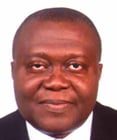




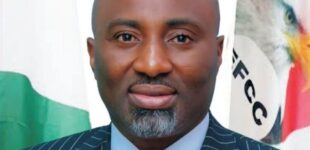
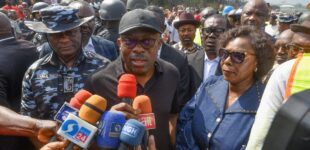



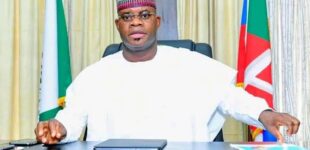
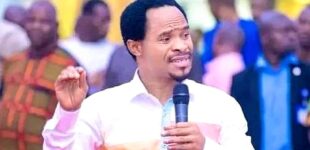

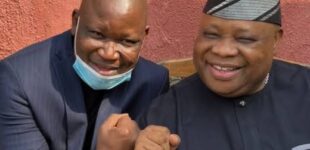


There are no comments at the moment, do you want to add one?
Write a comment